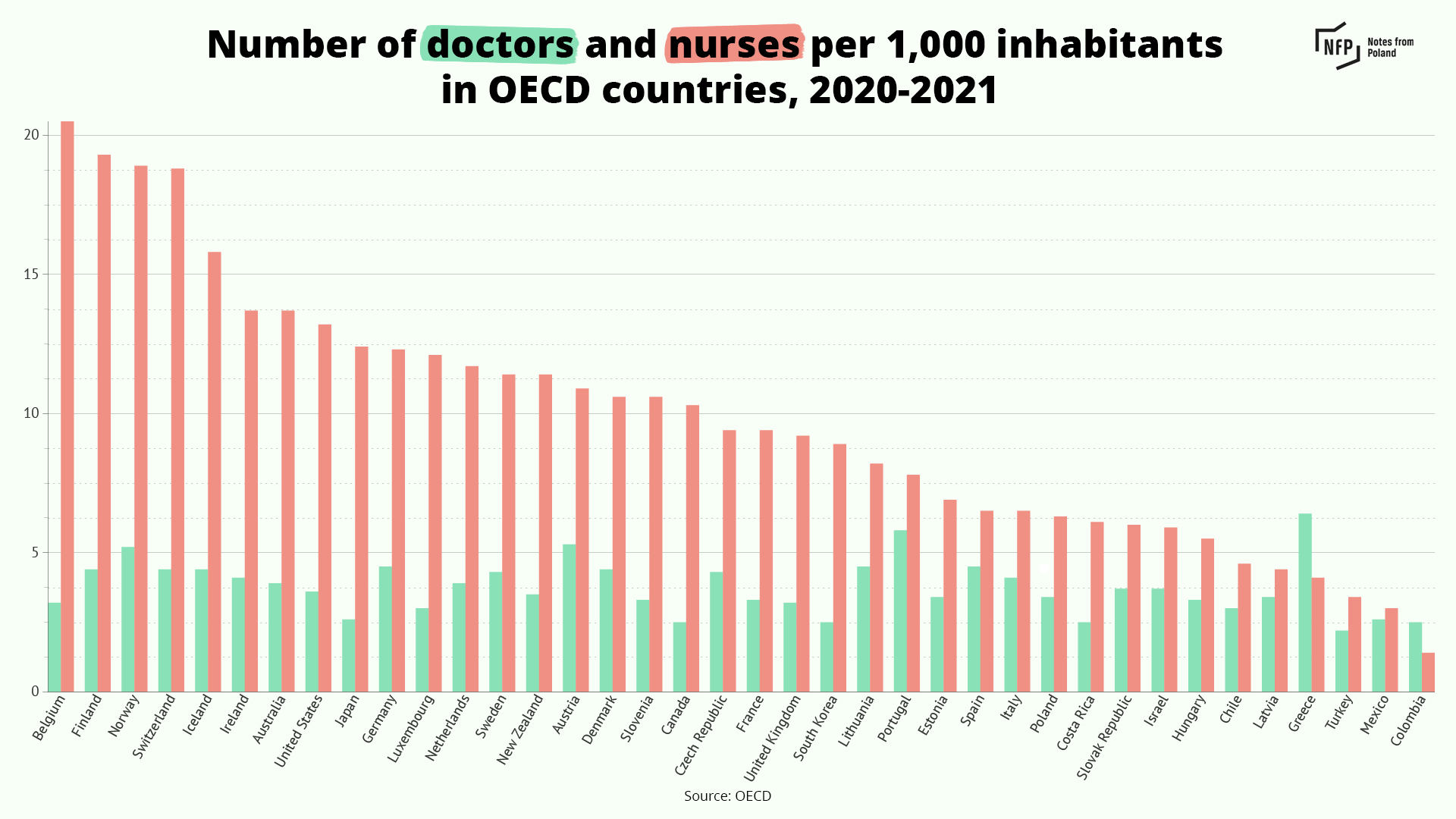Poland launches free preventative healthcare program for people aged 20+

Poland has launched a new free health screening program for people aged 20 and above, aiming to boost early detection of problems and promote preventive care.
The new initiative, called Moje Zdrowie (My Health), broadens the eligibility of a similar earlier scheme , Profilaktyka 40+ (Prevention 40+), which was available only to people over 40 years old.
Unlike the previous program, which offered a one-off set of checks, the new scheme can be used regularly: once every five years for those aged 20-49 and once every three years for those older than that. It also now includes a follow-up visit with a doctor.
✅ Free tests from the age of 20. ✅ Discussing the results with the medical staff of your #POZ clinic. ✅ Individual Health Plan.
🆕 You can now take advantage of the new #prophylaxis program ➡️ #MojeZdrowie | @MZ_GOV_PL . The program is financed by #NFZ .
📝 To… pic.twitter.com/au5otnnrQP
— National Health Fund (@NFZ_GOV_PL) May 8, 2025
My Health will be implemented in all primary health care centers (POZ) in Poland. Participants begin with a detailed questionnaire – online or in-person – covering lifestyle, family history and mental health.
It then generates a tailored list of recommended tests, with primary health care centers having to contact patients about them within 30 days and offer a follow-up consultation with a medical professional.
Based on the results of those tests, each participant will receive a personalized health plan, including an individual vaccination calendar and a list of preventive recommendations.
The basic testing package includes blood count, glucose, creatinine, lipid profile, thyroid hormones, and urinalysis. For older people, depending on the results of the questionnaire, additional checks such as liver tests, PSA (in men), anti-HCV or a stool test for occult blood may be ordered.
Registration for participation is possible via the Internet Patient Account (IKP), the Moje IKP app, or directly at a primary health care center.
“For decades, we have been accustomed to periodic preventive examinations of children and adolescents,” said Health Minister Izabela Leszczyna, announcing the new program. “Very often, however, adults forget to take the same care of themselves.”
“That is why we are introducing regular health checkups for adults – to help build the habit of routine screenings and encourage people to take better care of their own health,” she added.
Just over half (51%) of Poles use both public and private healthcare services, the highest figure ever recorded.
Only 24% exclusively use public healthcare – a record low – while 11% rely only on private providers https://t.co/uUshVwDjEv
— Notes from Poland 🇵🇱 (@notesfrompoland) August 29, 2023
The new program has been welcomed by medical professionals, who say it addresses key shortcomings of the previous initiative.
“My Health is a program different from Prevention 40+. It is a patient-friendly program, focused on action, not just on collecting results,” Michał Sutkowski, head of the College of Family Physicians in Poland (KLRwP), told industry news website Medexpress.
He noted that, under the previous scheme, many patients did not take further steps after completing their tests.
Łukasz Balwicki, a professor at the Medical University of Gdańsk, also told the Euractiv news website that he welcomed the new program, but added that it was important to check to what extent the healthcare advice given to people was actually being followed.
"My Health" instead of "Prevention 40+". What is changing and why is it important? https://t.co/G8J1BqgYQh
— medexpress.pl (@medexpresspl) May 6, 2025
The launch of the program comes amid an ongoing shortage of healthcare professionals in Poland, especially in primary care and in rural regions.
In 2021, Poland had 3.4 doctors per 1,000 people – matching the OECD average – but only 6.3 nurses per 1,000, well below the OECD average of 9.1.
The situation is expected to worsen in the coming years, as many medical staff approach retirement and too few new professionals are entering the workforce to take their place.
Meanwhile, according to the latest EU figures, in 2022 Poland spent the equivalent of 6.4% of GDP on healthcare, the fourth-lowest figure in the bloc and well below the EU-wide figure of 10.4%.

Main image credit: Pranidchakan Boonrom / Pexels
notesfrompoland


![Good news about Przeworsk station [PHOTOS]](/_next/image?url=https%3A%2F%2Fzycie.pl%2Fstatic%2Ffiles%2Fgallery%2F561%2F1585819_1746460199.webp&w=1280&q=100)


